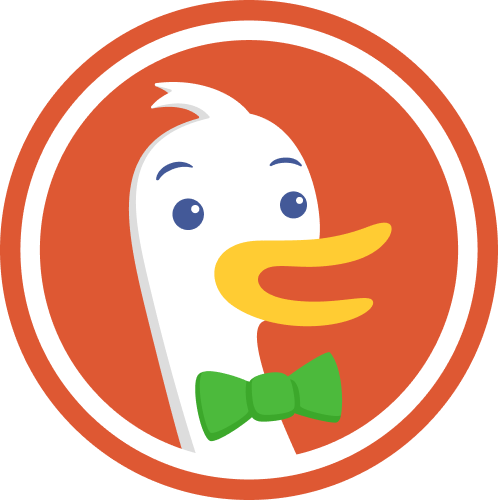Ethical, by Design: How We Design With Your Privacy in Mind
It’s not difficult to find examples of companies making questionable product decisions, especially when it comes to your data and privacy. There can be many reasons why the ethical design path is not chosen, but there is one common factor — there are people, such as managers, engineers, and/or designers, behind each choice. These roles often find themselves at a fork in the road between ethical design and design that's good for business.
At DuckDuckGo, by contrast, ethical design is simply ... design. This leaves us with one clear path. For us, this is possible because our teams work together towards one overarching, ethically-focused mission: We’re setting the new standard of trust online, empowering people to take control of their information. In other words, the responsibility of making ethical decisions isn't delegated to one or two roles, it's in the fabric of how we work across all roles. It's simply a natural byproduct of how we operate. This establishes a common direction and trust, so there’s no question who we’re building for and why.
In addition, we explicitly empower all team members to question assumptions and challenge one another to work best toward our mission. In fact, our core internal values are build trust, question assumptions, and validate direction. We put significant effort into the design of our organization, not just the design of our products. Therefore, these values are built into all of our company processes, from employee onboarding to transparent career growth to opportunities for everyone to take lead project and advisory roles.
This structure allows us to stay focused and dedicate our time and energy for the things important to our mission. This means that, by default, even the most basic interactions are designed with your privacy and control in mind. Here are a few design problems common to tech products and how we approach them, ethically:
Problem #1: You don't know you're being tracked until it's too late.
Solution: Set clear expectations so you’re always in control of your data.
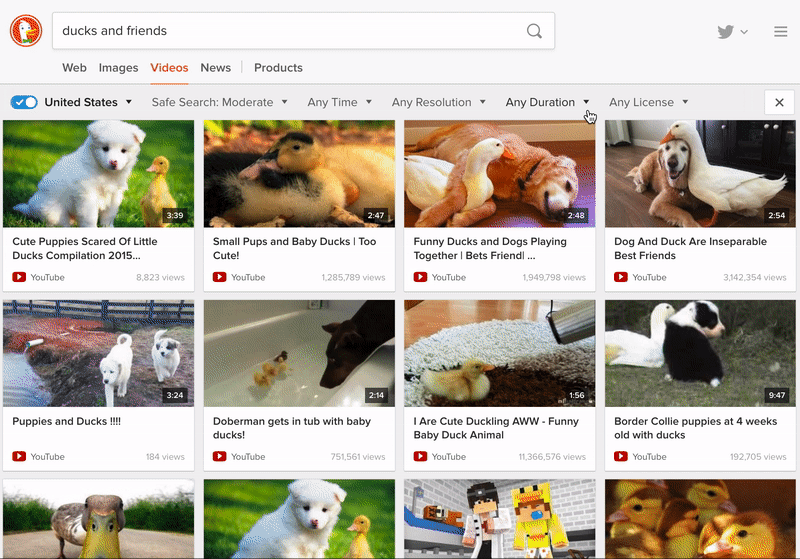
While searching for your favorite videos, the experience is as easy and relevant as you’ll find elsewhere, but we also set expectations—before watching—that the destination (in this case YouTube) may be unsafe .
Problem #2: Privacy features can be hard to find.
Solution: Showcase features that demonstrate our privacy-focused mission.
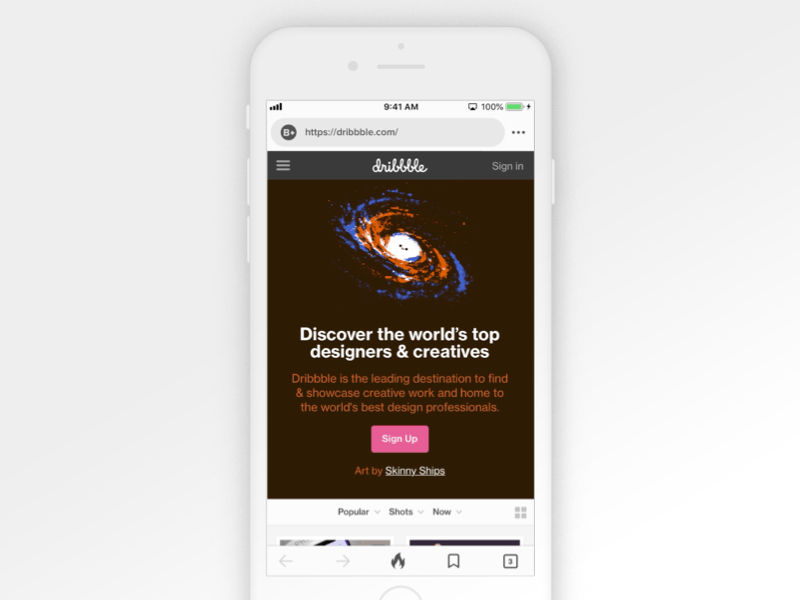
The DuckDuckGo Privacy Browser has all the features you’d expect for browsing the Internet, plus additional privacy features, which we put front and center. For example, our Fire Button allows you to clear all tabs and data at any time, putting you in control of your search and browsing data.
Problem #3: Your favorite sites may have poor privacy practices.
Solution: Block trackers on your behalf, enforcing transparency and honesty from other sites, so you can still visit them with peace of mind.
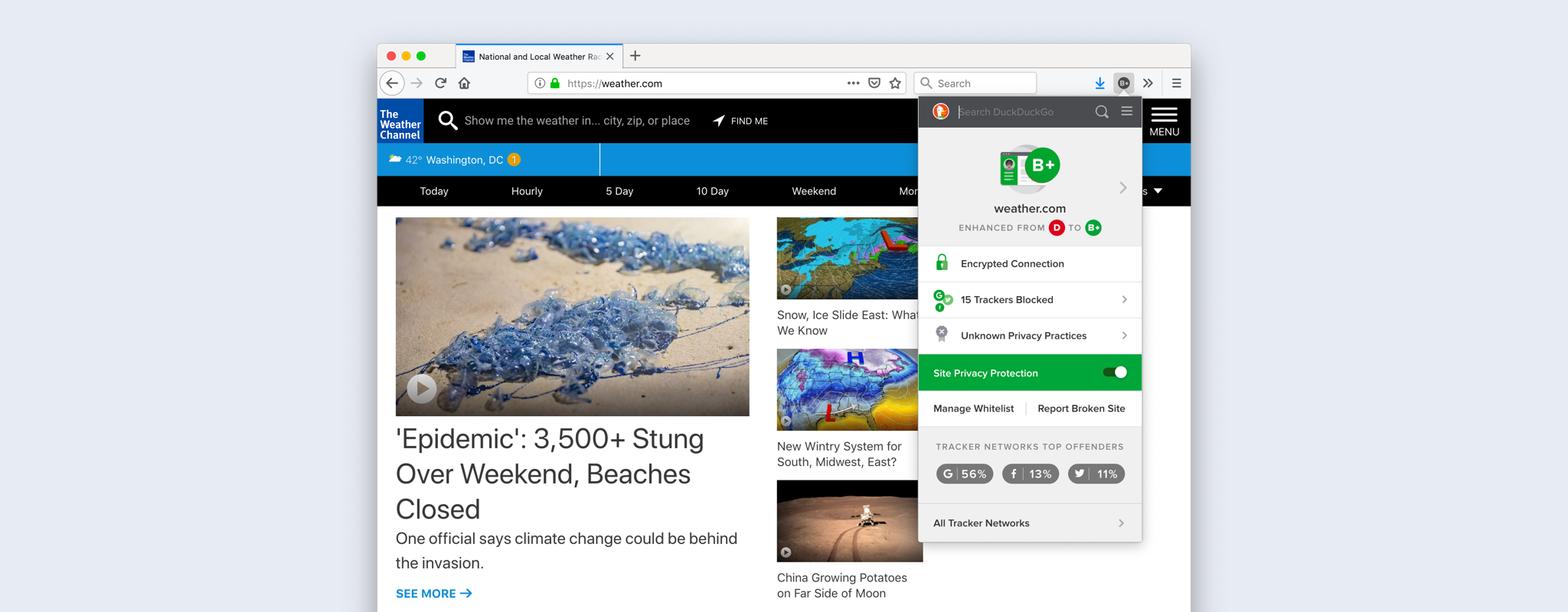
Our DuckDuckGo Privacy Essentials (browser extension shown) is another way we put you in control of your data, with our Privacy Protection feature. We give each website you visit a Privacy Grade based on how safe it is. When Privacy Protection is turned on, we can make the site safer for you—improving its Privacy Grade. We don’t expect to change everyone’s browsing habits, like stopping you from going to sites that try to track you, but we can make this experience more transparent and safe.
Problem #4: Your location is personal, but important for getting results.
Solution: Let you decide how and when to provide your location, then throw it away after use.
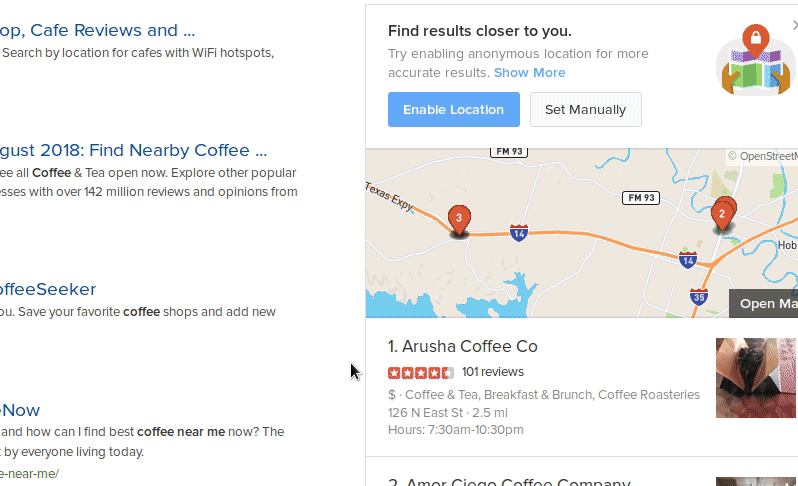
Once set, the location is stored on your device and only sent to us when necessary, which you can change at any time. After we use it to give you better results, we immediately throw it away. When using DuckDuckGo Private Search, we don’t limit the experience, but allow you to be in control. Learn more about how we deliver anonymous local results here.
Problem #5: Internet privacy is a complex and overwhelming topic.
Solution: Make learning easy and accessible.
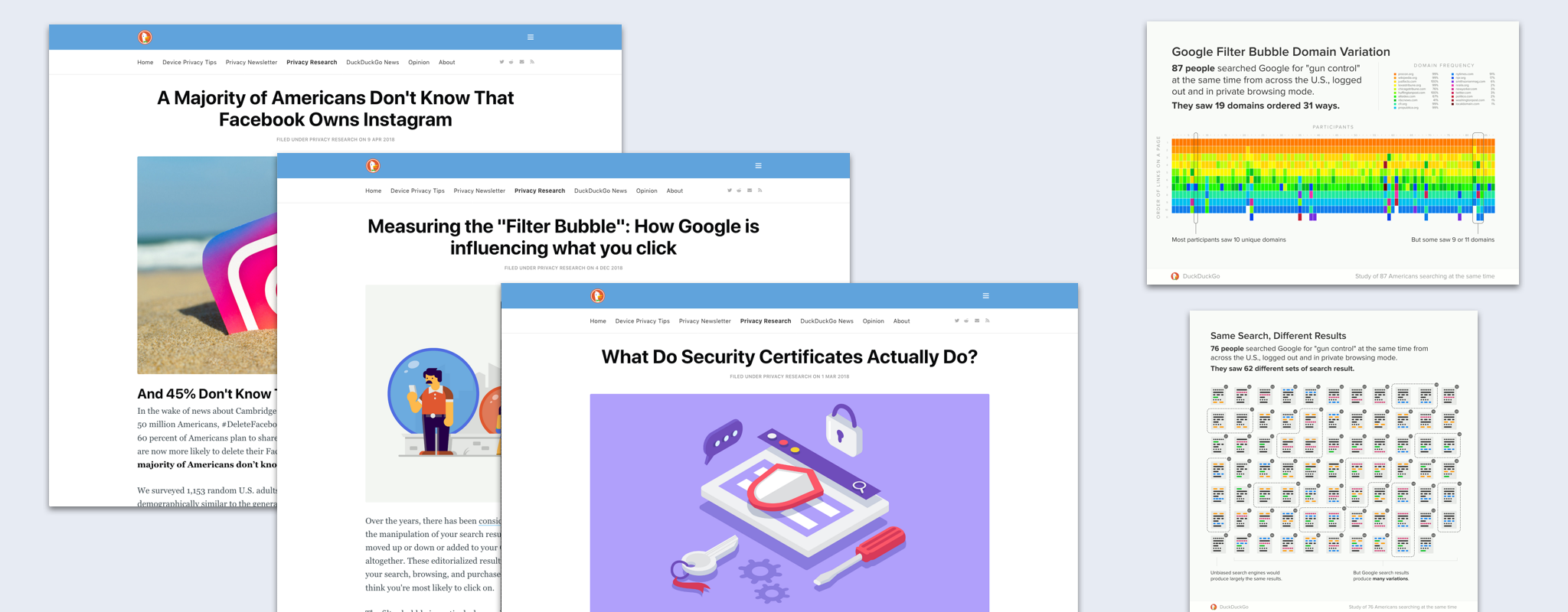
With this Spread Privacy Blog, our goal is to make privacy education accessible. We do so by making our research transparent and writing about complex, technical subjects in a way that’s accessible to anyone, not just to tech savvy people.
These five design problems exist in most tech products, but unfortunately are often approached without your privacy in mind. At DuckDuckGo, even common tasks and interactions like these are designed ethically.
We’re also proud to have a business model that’s profitable without making your personal information the product. Delivering an ethically designed experience is good for business and this is what's possible when the whole company is empowered with the responsibility to do so. Even large companies are catching on and taking a stand for the ethical way forward. As designers, developers, managers, and users, it's not only possible to hold ourselves accountable for the decisions we make, experiences we design, and products we use—it's our responsibility.
? We’re hiring! Work with us to build awesome tools, new technology, and transform the DuckDuckGo experience across all of our products.
